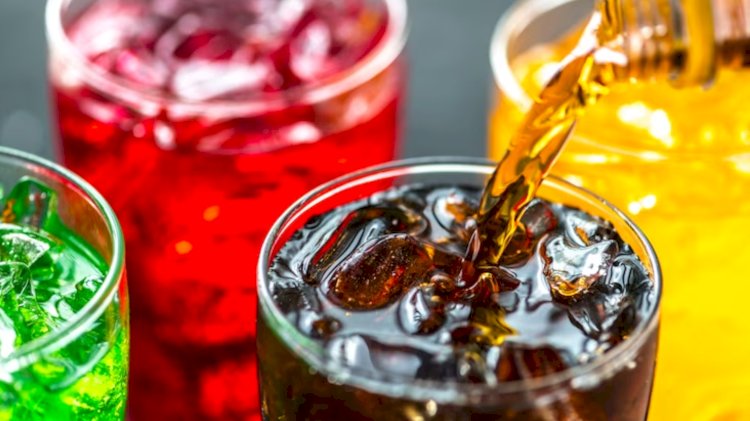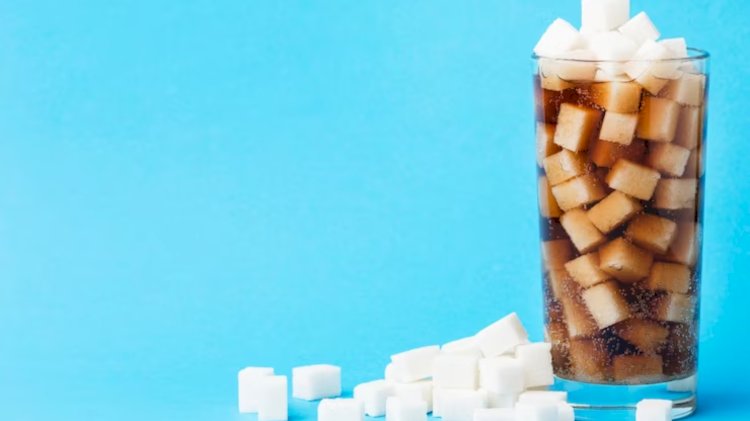Why Soft Drinks Are Bad For The Body?
Dig into the dark side of carbonated drinks and their connection to obesity, diabetes, and chronic diseases. Make informed decisions for your well-being.
Soft drinks, also known as soda or carbonated beverages, have become a pervasive part of modern life. From restaurants to vending machines, these fizzy, sugary drinks are readily available everywhere. While they may be refreshing and seemingly harmless, there's a darker side to soft drinks that can have significant negative impacts on our health.
Health Effects of Soft Drinks
A. Dental Health
When it comes to dental health, soft drinks are one of the worst offenders. Packed with sugar, these beverages create an ideal breeding ground for harmful bacteria in our mouths, leading to cavities and tooth decay. Even sugar-free sodas with artificial sweeteners can be acidic and contribute to enamel erosion.
B. Weight Gain and Obesity
Weight-conscious individuals often opt for diet sodas, thinking they are making a healthier choice. However, research has shown that artificial sweeteners may actually stimulate appetite and contribute to weight gain. Regular consumption of sugary sodas, on the other hand, directly adds empty calories to our diet, leading to weight gain and an increased risk of obesity.
C. Increased Risk of Type 2 Diabetes
The connection between soft drinks and an elevated risk of type 2 diabetes is well-established. The high levels of added sugars in these beverages cause rapid spikes in blood sugar levels, straining the body's ability to produce insulin and eventually leading to insulin resistance.
D. Impact on Bone Health
Phosphoric acid, commonly found in soft drinks to give them a tangy flavor, can hinder calcium absorption in our bodies. Over time, this can weaken our bones and increase the risk of conditions like osteoporosis.
E. Cardiovascular Issues
Regularly consuming sugary drinks has been linked to an increased risk of heart disease and hypertension. The excess sugar can lead to inflammation and high blood pressure, putting a strain on the cardiovascular system.
F. Effects on Digestive System
Carbonated beverages can lead to bloating, gas, and indigestion. The high acidity levels in soft drinks may also irritate the stomach lining, causing discomfort.
G. Dehydration Concerns
Ironically, despite being liquid, soft drinks can contribute to dehydration. The caffeine content in many sodas acts as a diuretic, increasing urine production and potentially leaving us more dehydrated.
Sugar Content in Soft Drinks
A. Hidden Sugars
Soft drinks often contain hidden sugars, meaning we may unknowingly consume far more sugar than we intend to. This hidden sugar intake can lead to numerous health problems over time.
B. High Fructose Corn Syrup
High fructose corn syrup, a cheap and widely used sweetener in soft drinks, has been associated with obesity, insulin resistance, and other metabolic issues.
C. Artificial Sweeteners
In the quest to offer diet versions, many soft drinks are sweetened with artificial sweeteners like aspartame and sucralose. However, these sweeteners come with their own set of health concerns, and their long-term effects on the body are still not entirely understood.
Harmful Additives and Chemicals
A. Phosphoric Acid
Phosphoric acid, besides affecting bone health, has been linked to kidney stones and may interfere with nutrient absorption.
B. Caffeine
Soft drinks often contain caffeine, which can lead to addiction and may disrupt sleep patterns, causing restlessness and insomnia.
C. Artificial Colors and Flavours
Some soft drinks use artificial colours and flavours, which have been associated with behavioural issues, particularly in children.
Long-term Health Consequences
A. Chronic Diseases
Numerous studies have linked regular soft drink consumption to an increased risk of chronic diseases like heart disease, stroke, and metabolic disorders.
B. Metabolic Syndrome
Soft drinks play a role in the development of metabolic syndrome, a cluster of conditions that elevate the risk of heart disease, diabetes, and stroke.
Tips to Reduce Soft Drink Consumption
A. Choose Healthier Alternatives
Opt for healthier beverage options like water infused with fruits or herbs, natural fruit juices, or unsweetened tea.
B. Read Labels Carefully
Be vigilant about reading labels and understanding the sugar and additive content of the drinks you consume.
C. Gradual Reduction Strategy
If you're accustomed to drinking several sodas a day, consider gradually reducing your intake to avoid withdrawal symptoms and cravings.
D. Opt for Water
Keep a water bottle with you throughout the day to quench your thirst and stay hydrated without turning to soda.
Conclusion
Soft drinks might offer momentary pleasure, but their long-term consequences on our health are concerning. From dental issues and weight gain to an increased risk of chronic diseases, the negative effects of these sugary beverages are evident. By making informed choices and prioritising healthier alternatives, we can protect our bodies and well-being. Remember, a refreshing glass of water is not only a better choice but also a fundamental necessity for sustaining a healthy lifestyle. Let's raise our glasses to good health and bid farewell to the fizzy temptations of soft drinks.
Share
What's Your Reaction?
 Like
0
Like
0
 Dislike
0
Dislike
0
 Love
0
Love
0
 Funny
0
Funny
0
 Angry
0
Angry
0
 Sad
0
Sad
0
 Wow
0
Wow
0



















